#Croatian Literature
Explore tagged Tumblr posts
Text
“Listen: I always return to myself.”
Vesna Parun, from “A Return to the Tree of Time,” tr. Vasa D. Mihailovich.
#Vesna Parun#A Return to the Tree of Time#Croatian Literature#Poetry#Quotes#Literature#W#Lit#Litblr#Dark Academia
866 notes
·
View notes
Text
Oh potjeh how I love you as a character
#mari's ramblings#context: talking about this one croatian tale#kako je potjeh tražio istinu#how quest sought the truth#ivana brlić-mažuranić#croatia#croatian fairytales#fairytales#childrens literature#literature#croatian literature#potjeh#croatian culture
2 notes
·
View notes
Text
Therapist: OG haters aren't real, they can't hurt you The OG haters:
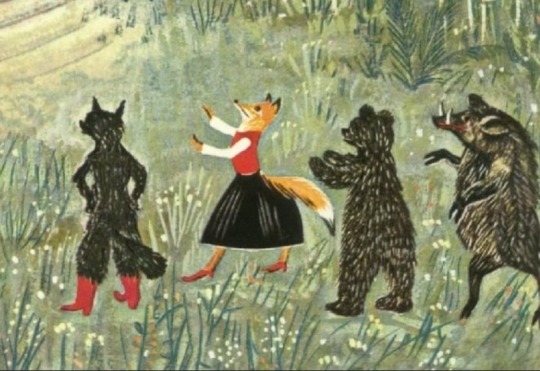
full pic below
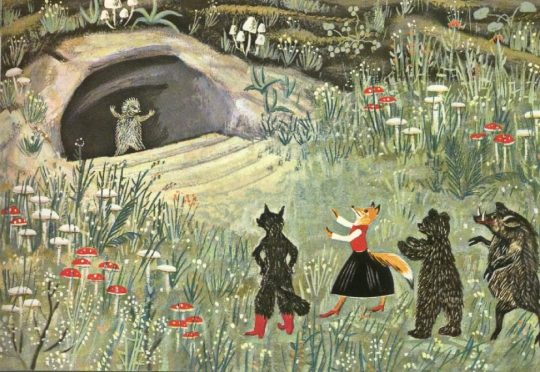
they dissed his house :(
#ježeva kućica#Branko Ćopić#kids literature#croatian literature#hedgehog#wolf#fox#bear#boar#today's kids books could never
3 notes
·
View notes
Text

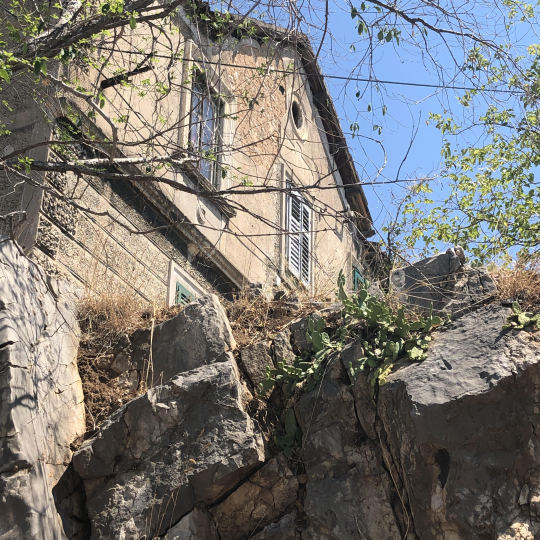
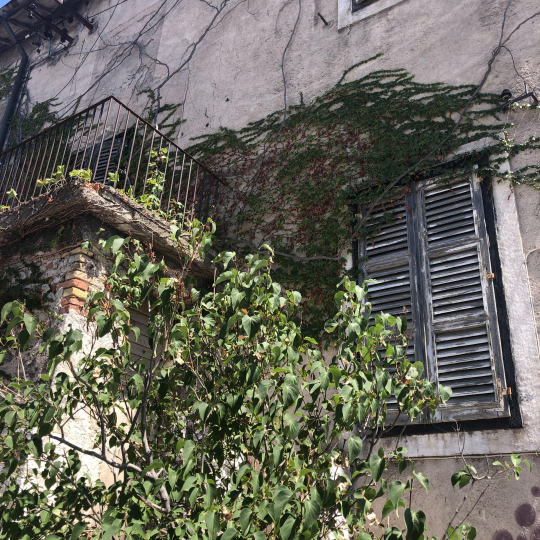

after death, josip pupačić // šibenik, croatia // the unbuilt house, josip pupačić (my translations)
#poetry#literature#lit#croatian poetry#šibenik#photography#josip pupačić#quotes#mediterranean#original photography#emcyan#parallels
20 notes
·
View notes
Text
The growing TBR Pile : 2024 edition

I'm not a fast reader. Case in point : Storygraph has me pinned as someone reading a book in... 2 months. I say this is slander. I think. I'm not sure. There might be some truth somewhere. But I consume a lot of content either via YouTube or Tumblr about books.
The consequences are dire : my TBR pile grows and grows! So here are some of my 2024 discoveries that I want to read (at some point, I don't know when exactly, it's difficult to say - but it will happen?).
First stop : Bosnian-Croatian-Serbian literature.
At the beginning of the year, I happened on a very short article (in an otherwise very dense newspaper) listing some of the latest translations by a single translator of BCS language. She mentioned the similarities and differences between all those languages, leading me to read more and more about her work and those languages. It made me quite curious about translated literature from that region and ended up compiling a few of them.
Source : interview in French of Chloe Billon, the translator in question, in Pages Sauvages.
Na Drini ćuprija - The Bridge over the Drina -, Ivo Andrić (1945)

The town of Visegrad was long caught between the warring Ottoman and Austro-Hungarian Empires, but its sixteenth-century bridge survived unscathed--until 1914 when tensions in the Balkans triggered the first World War. Spanning generations, nationalities, and creeds, The Bridge on the Drina brilliantly illuminates a succession of lives that swirl around the majestic stone arches. Among them is that of the bridge's builder, a Serb kidnapped as a boy by the Ottomans; years later, as the empire's Grand Vezir, he decides to construct a bridge at the spot where he was parted from his mother. A workman named Radisav tries to hinder the construction, with horrific consequences. Later, the beautiful young Fata climbs the bridge's parapet to escape an arranged marriage, and, later still, an inveterate gambler named Milan risks everything on it in one final game with the devil.
Adios, Comboy, Olja Savičević Ivančević (2011)
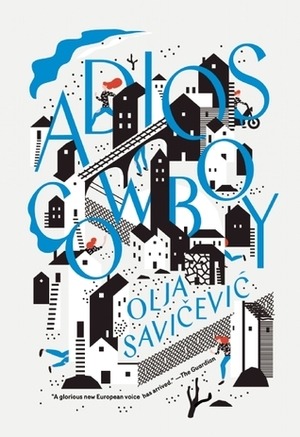
Dada’s life is at a standstill in Zagreb—she’s sleeping with a married man, working a dead-end job, and even the parties have started to feel exhausting. So when her sister calls her back home to help with their aging mother, she doesn’t hesitate to leave the city behind. But she arrives to find her mother hoarding pills, her sister chain-smoking, her long-dead father’s shoes still lined up on the steps, and the cowboy posters of her younger brother Daniel (who threw himself under a train four years ago) still on the walls.Hoping to free her family from the grip of the past, Dada vows to unravel the mystery of Daniel’s final days.
Second Stop : Polish literature
I learned a lot this past year about Poland (for personal reasons). I started reading about the history of the country, the language, its culture etc. I was at first quite ashamed to be so oblivious to another country from which quite a few of my friends's family come from, and with which French history is so closely linked. Obviously, I started piling up some polish writers in my TBR as a result.
Bezrobotny Lucyfer - Lucifer Unemployed -, Aleksander Wat (1927)
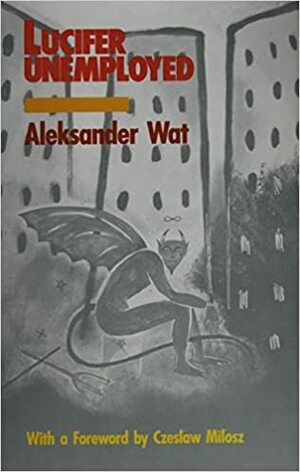
In these nine stories the Polish writer Aleksander Wat consistently turns history on its ear in comic reversals reverberating with futurist rhythms and the gently mocking humor of despair. Wat inverts the conventions of religion, politics, and culture to fantastic effect, illuminating the anarchic conditions of existence in interwar Europe. The title story finds a superbly ironic Lucifer wandering the Europe of the late 1920s in search of a mission: what impact can a devil have in a godless time? What is his sorcery in a society far more diablical than the devil himself? Too idealistic for a world full of modern cruelties, the unemployable Lucifer finally finds the only means of guaranteed immortality. In "The Eternally Wandering Jew," steady Jewish conversion to Christianity results in Nathan the Talmudist reigning as Pope Urban IX. The hilarious satire on power, "Kings in Exile," unfolds with the dethroned monarchs of Europe meeting to found their own republic in an uninhabited island in the Indian Ocean.
Third and Final Stop : under the Influence
I used to watch TikTok at some point, and most of the content left me frustrated, with a hint of dissatisfaction. But sometimes, sometimes, I happened on a great content creator, full of enthusiasm, or a very very avid reader sharing their love for one book. This, unfortunately, doesn't leave me unbothered. And I do admit, witnessing the passion of someone else about a book, made me want to dive into the novels myself !
Memórias Póstumas de Brás Cubas - The Posthumous Memoirs of Brás Cubas -, Machado de Assis (1881)
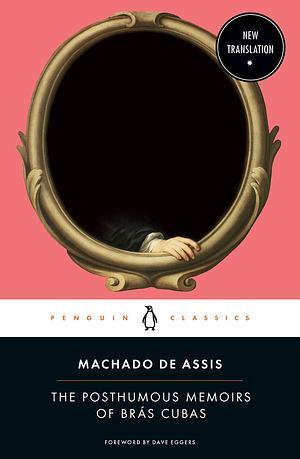
Machado de Assis is not only Brazil's most celebrated writer but also a writer of world stature. In his masterpiece, the 1881 novel The Posthumous Memoirs of Brás Cubas (also translated as Epitaph of a Small Winner), the ghost of a decadent and disagreeable aristocrat decides to write his memoir. He dedicates it to the worms gnawing at his corpse and tells of his failed romances and half-hearted political ambitions, serves up hare-brained philosophies and complains with gusto from the depths of his grave. Wildly imaginative, wickedly witty and ahead of its time, the novel has been compared to works by Cervantes, Sterne, Joyce, Nabokov, Borges and Calvino, and has influenced generations of writers around the world.
The Safekeep, Yael van der Wouden (2024)
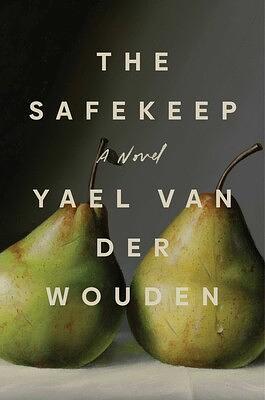
It is 1961 and the rural Dutch province of Overijssel is quiet. Bomb craters have been filled, buildings reconstructed, and the war is truly over. Living alone in her late mother’s country home, Isabel knows her life is as it should be—led by routine and discipline. But all is upended when her brother Louis brings his graceless new girlfriend Eva, leaving her at Isabel’s doorstep as a guest, to stay for the season. Eva is Isabel’s antithesis: she sleeps late, walks loudly through the house, and touches things she shouldn’t. In response, Isabel develops a fury-fueled obsession, and when things start disappearing around the house—a spoon, a knife, a bowl—Isabel’s suspicions begin to spiral. In the sweltering peak of summer, Isabel’s paranoia gives way to infatuation—leading to a discovery that unravels all Isabel has ever known. The war might not be well and truly over after all, and neither Eva—nor the house in which they live—are what they seem.
#saintsaens reads 2024 edition#tbr pile#tbr list#books#bosnian croatian serbian literature#(is there a tag that relates to them ???)#polish literature#brasilian literature#classic literature
6 notes
·
View notes
Text
Die Verwandlung - Croatia (1977)

"As Gregor Samsa awoke one morning from uneasy dreams he found himself transformed in his bed into a gigantic insect. He was laying on his hard, as it were armor-plated, back and when he lifted his head a little he could see his domelike brown belly divided into stiff arched segments on top of which the bed quilt could hardly keep in position and was about to slide off completely. His numerous legs, which were pitifully thin compared to the rest of his bulk, waved helplessly before his eyes."
#croatia#croatian cover#franz kafka#book covers#book cover#classic lit#classic books#classic literature#the metamorphosis
0 notes
Text
On through the dark forest: Celebration by Damir Karakaš
This taut novella opens in 1945. Above a little village, Mijo lies hidden in the woods, looking down at he house where his wife and sons live. In his yellow-brown uniform he must stay out of sight. The war is over and the soldiers of the Nazi-allied Ustaša force are now on the run or in hiding. He hopes against hope that he will someday be able to return to the little family he left behind when…
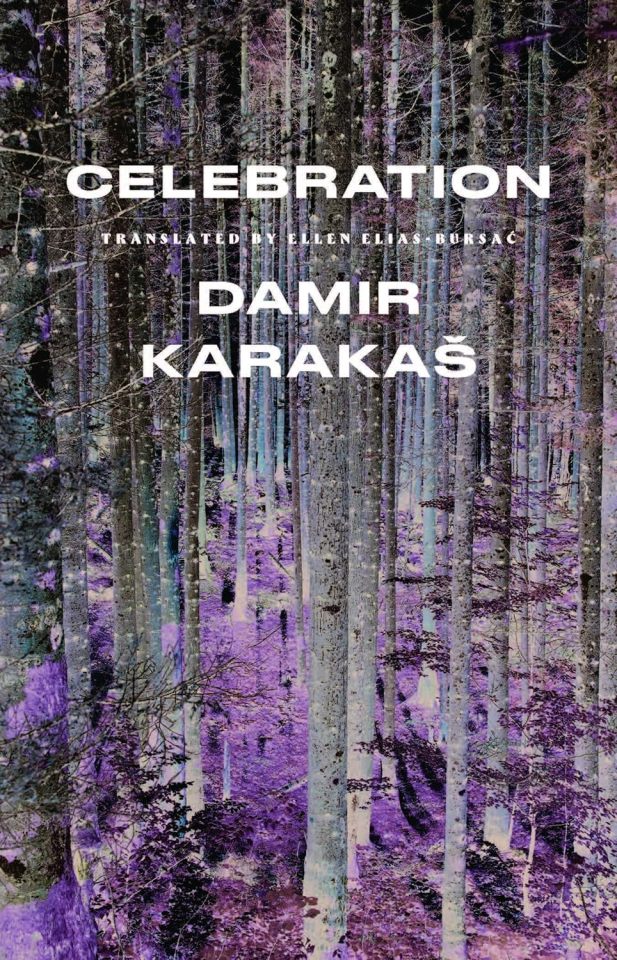
View On WordPress
#book review#books#Celebration#Croatian#Damir Karakaš#Ellen Elias-Bursać#literature#translation#Two Lines Press
0 notes
Text
went out for afternoon drinks in the city. came home with 3 books i do not need. so.
#hard is the life of a bookworm#sid posts#sid text#bookworm#bookblr#litblr#literature#oh the books in question: tsoa in memoriam and croatian edition of my year of rest and relaxation
1 note
·
View note
Text
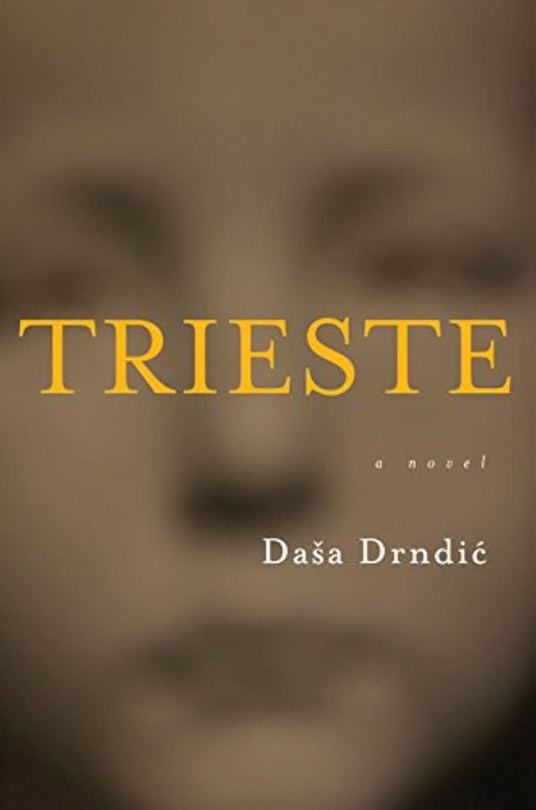
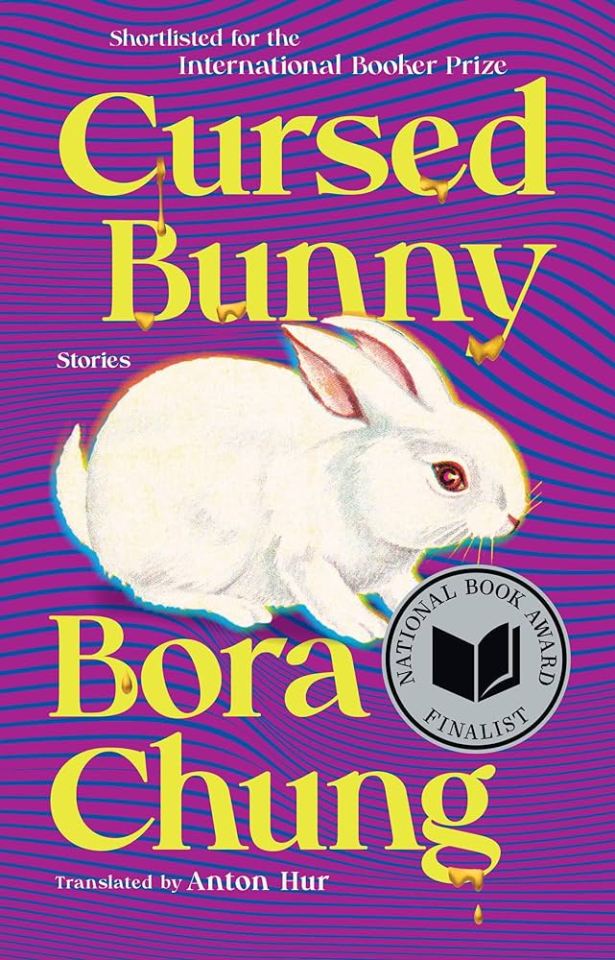
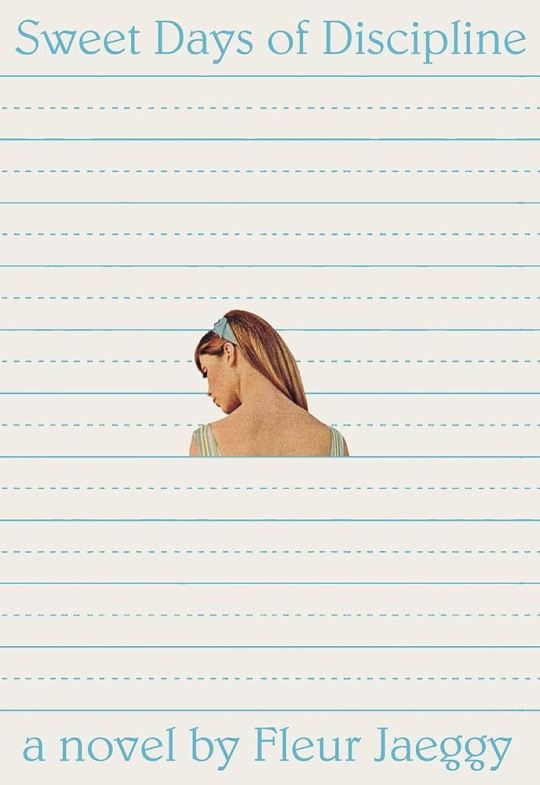
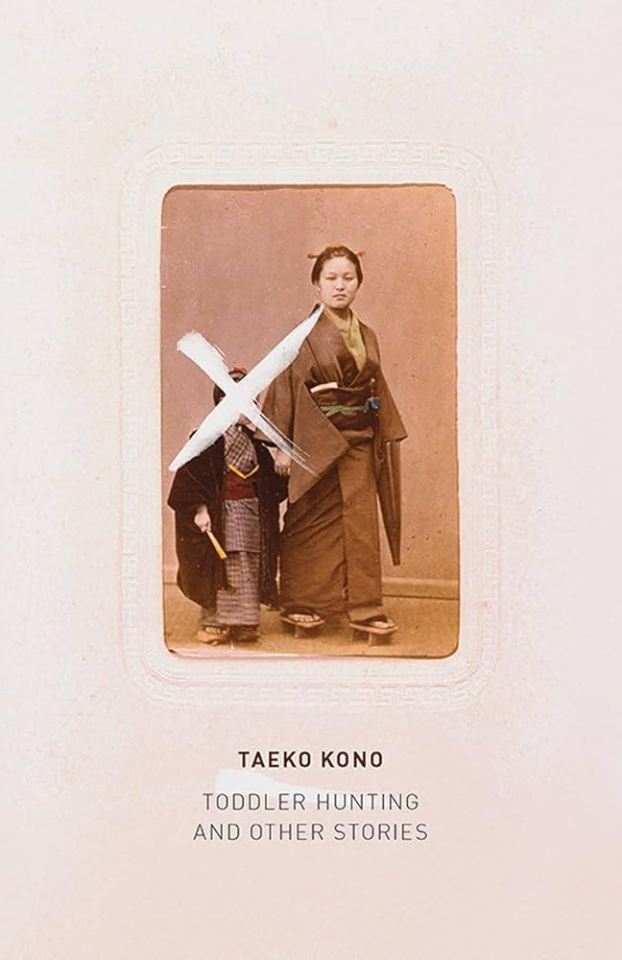
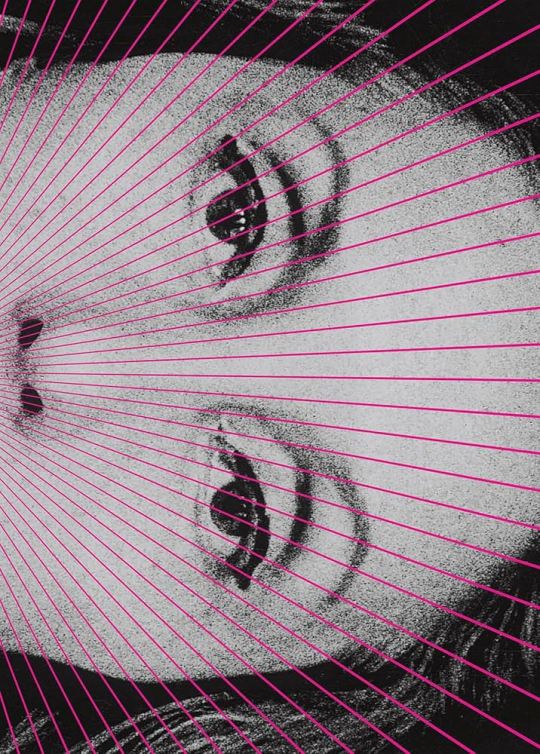
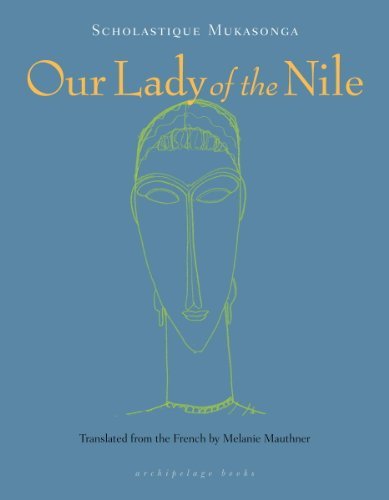
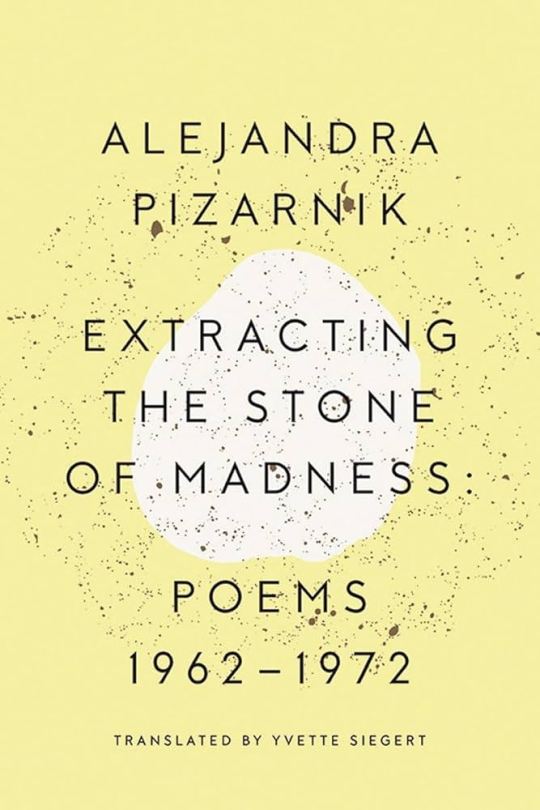
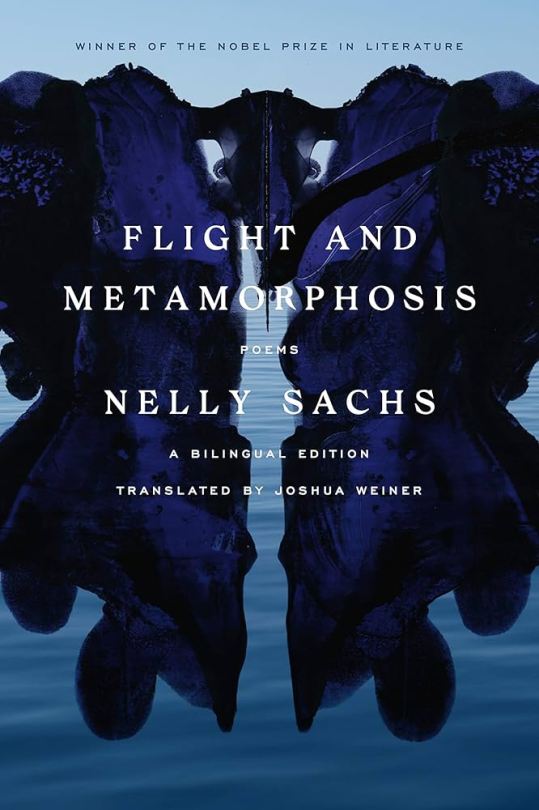
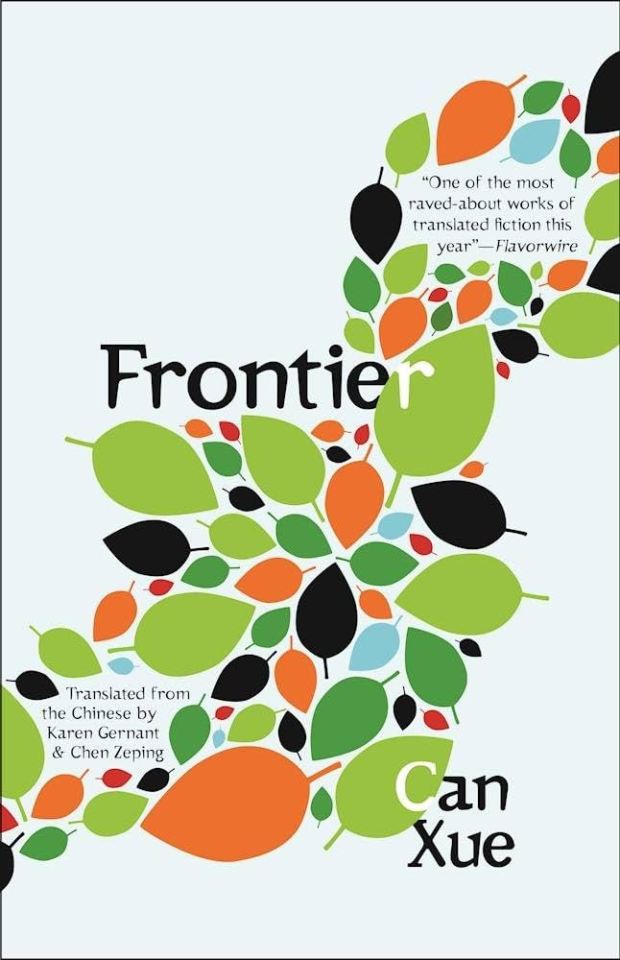
Hi friends! Inspired by @librarycards I wanted to make a post celebrating Women in Translation Month! Anglophone readers generally pay embarrassingly little attention to works in other languages, and that's even more true when it comes to literature by women, so I will jump at any chance to promote my faves 🥰 Here are some recs from 9 different languages! Also, I wrote this on my phone, so apologies for any typos or errors!
1. Trieste by Daša Drndić, trans. Ellen Elias-Bursać (Croatian): An all-time favorite. Much of Drndić's work interrogates the legacy of atrocities in Europe, particularly eastern Europe. Trieste is a haunting contemplative novel centered on an elderly Italian Jewish woman whose family converted to Catholicism during the Mussolini era and were complicit in the fascist violence surrounding them in order to protect themselves.
2. Cursed Bunny by Bora Chung, trans. Anton Hur (Korean): A collection of short stories that are difficult to classify by genre–speculative fiction in the broadest sense. The first story is about a monster in a woman's toilet, which sounds impossible to pull off in a serious, thought-provoking manner, but Chung does so easily—these are the kind of stories that are hard to explain the brilliance of secondhand.
3. Sweet Days of Discipline by Fleur Jaeggy, trans. Tim Parks (Italian; Jaeggy is Swiss): Another all time favorite! The cold, sterile homoerotic girls' boarding school novella of your dreams.
4. Toddler-Hunting and Other Stories by Taeko Kono, trans. Lucy North (Japanese): I think I read this in one sitting. Incredibly unsettling—these stories will stay with you. They often focus on the unspoken psychosexual fantasies underscoring mundane daily life.
5. The Complete Stories by Clarice Lispector, trans. Katrina Dodson (Brazilian Portuguese): I think Lispector is the best known writer here, so she might not need much of an introduction. But what a legend! And this collection is so diverse—it's fascinating to see the evolution of Lispector's work.
6. Our Lady of the Nile by Scholastique Mukasonga, trans. Melanie L. Mauthner (French; Mukasonga is Rwandan): Give her the Nobel! Mukasonga's books, at least the ones available in English, are generally quite short but so impactful. Our Lady of the Nile is a collection of interrelated short stories set at a Catholic girls' boarding school in Rwanda in the years before the Rwandan genocide. These stories are fascinating on many levels, but perhaps the most haunting element is seeing how ethnic hatred intensifies over time—none of these girls would consider themselves particularly hateful or prejudiced, but they easily justify atrocities in the end.
7. Extracting the Stone of Madness: Poems 1962-1972 by Alejandra Pizarnik, trans. Yvette Siegert (Spanish; Pizarnik was Argentinian): Does anyone remember when my url was @/pizarnikpdf... probably not but worth mentioning to emphasize how much I love her <3 Reading Pizarnik is so revelatory for me; she articulates things I didn't even realize I felt until I read her words.
8. Flight and Metamorphosis: Poems by Nelly Sachs, trans. Joshua Weiner (German): Sachs actually won the Nobel in the 1960s, so it's surprising that she's not better known in the Anglosphere. Her poems are cryptic and surreal, yet deeply evocative. Worth mentioning that this volume is bilingual, so you can read the original German too if you're interested.
9. Frontier by Can Xue, trans. Karen Gernant and Chen Zeping (Chinese): Can Xue is another difficult-to-classify writer in terms of genre. Her short stories are often very abstract and can be puzzling at first. I think Frontier is a great place to start with her because these stories are interconnected, which makes them a bit more accessible.
83 notes
·
View notes
Text
“In 1941, after a dramatic turn of events, both outside and inside the country, Croatia proclaimed independence, becoming a puppet state of the German Third Reich. The Independent State of Croatia (NDH – Nezavisna Drzava Hrvatska) was born. Almost immediately, racial laws were introduced. Fritz (my grandfather) had just come back from his travels abroad when the new law forced him to return to the town of his birth in order to register as a Jew and get a yellow star on his sleeve. His sisters who stayed in Bosnia were in hiding. Both of them had married Serbs because, even with Serbs being hated and persecuted, it was still better to be a Serb than a Jew.
“It’s still better to be a Serb than a Jew” – I would hear that same exact sentence from a Hungarian consul in London in 1993, while we were applying for a visa. The consul meant it as a joke. But my husband and I, people with no country or passport at the time, did not laugh. We could not understand how this man had managed to identify us as a Serb and a Jew respectively, although we ourselves had never mentioned those facts and our travel documents did not hold that information. Are all racists of this world connected in some unknown, mysterious way? Do they know facts about us that even we don’t know?
Fritz was torn. He had an invitation to emigrate to Israel. My mother would mourn his refusal to take that offer throughout her whole life. Why didn’t he leave? He was a fairly well-known figure in Zagreb. One of his best friends was Bozidar Adzija, a respected leftist writer and politician. A street in Zagreb bore his name until the right wing Tudjman government changed it in the nineties.
This group of young people was infected by progressive ideas about a world without nationalism and religious sectarianism. Fleeing to Israel must have seemed like giving up on those ideas. It meant seeking refuge with your own tribe and thus denouncing the idea of being a citizen of the world. At least I presume that was one of the reasons to stay. There was also the well known human habit of refusing to believe the worst could ever happen. Also, finding solace in the word of the law, even if that law seems wrong (If I obey the law, they would not hurt me, would they? The answer is: yes, they would.)
Fritz obediently returned to his town of Bijeljina and registered as a Jew. He went searching for his sisters who chased him away: he was a danger to them. They were hiding in a Serbian Orthodox church where the authorities didn’t dare to touch them. They both took their husbands’ Serbian names. They didn’t want to risk capture because of their brother. Later on, in discussions with my Jewish family in Belgrade, I would always detect an animosity towards Fritz: how dared he endanger the family? Fritz was on his own, without protection from anyone. He was immediately captured by the Bosnian pro-Nazi Muslim police and transferred to the Croatian Ustashas. And that’s how he found himself in Jasenovac concentration camp.
That beautiful, soft, elegant, educated man was now digging mud from the smelly ditch surrounding the camp, at the mercy of enthusiastic killers. It wouldn’t last long. How old was he when he died? I could never find out. He had disappeared without a trace. Branka spent the war in Zagreb, under the strict antisemitic laws, studying French and Yugoslav literature at the university. She would hide from all the horror behind books. They were saving her life. On the practical front, she started using her biological mother’s name, Savić, because – as I said before – in that time and that place it was still better to be a Serb than a Jew. But what really protected her during the Nazi years in Croatia was her adoptive mother, Ljuba.”
- Mira Furlan, Love Me More Than Anything In the World
#mira furlan#book excerpt#this book is definitely not a light hearted read#this pretty much sets the tone
38 notes
·
View notes
Text
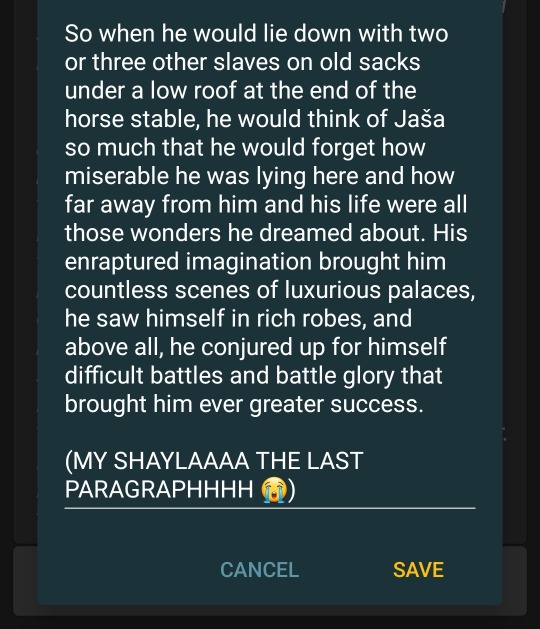
I want to write something exploring the effects of slavery on Jaša and his friend Viško to explore their psychology. Like there's gotta be a little damage left on the psyche at having to sleep on empty sacks in a barn, let alone the entire process of slavery. Even if it was the 1470s. ☠️
#my shaylaaaa#croatia#croatian#croatian literature#historical literature#historical fiction#fiction#novels#jaša dalmatin#ivana brlić mažuranić
1 note
·
View note
Text
Ya know what? HECK YOU!!!
-presses play, we're watching Čudnovate Zgode Šegrta Hlapića, an animated movie made in 1997, based on a 1913 novel of the same name by Ivana Brlić-Mažuranić, a Croatian writer who was recognized as Croatia and the world's most significant children's book writer-
#šegrt hlapić#ivana brlić mažuranić#croatian literature#čudnovate zgode šegrta hlapića#the movie is older than my brother
3 notes
·
View notes
Text
September 2024
[Originally posted to Orion Scribner's Patreon blog on September 16, 2024.]
I've been thinking for a long time that I need to get back into posting regular updates to my Patreon about what I'm doing instead of assuming you all are following me on other sites where those things are happening. Here are some of those things, which are mostly writings from my original research about otherkin, therianthropes, and other alterhumans.
I have a store on itch.io now! My creations that I've put on it, available to read for free:
A Simple Introduction to Otherkin and Therianthropes, version 2.4.8. My two page long essay explains what we are, in a way that the average person can understand. Written in the limited vocabulary of Simple English, it doesn't use any special words. If you read this essay many years ago and found it sounded rather stilted, don't worry, I completely rewrote this version! It also cites primary sources for each idea. I'm working with volunteers to translate it into many languages. Thanks to them, it's in German, Dutch, Estonian, and Polish. Chinese, Croatian, and Spanish are in progress. On the page, I give links to the ko-fi accounts of the translators so you can tip them, if they chose to allow that.
The Otherkin Timeline. This is my community history book that helped make it possible for other researchers to write about us, so most academic papers on otherkin cite it. Version 2.1 is mostly the version that has been in circulation for more than a decade, plus a few small additions and corrections. The next update of the book will change and expand it considerably, because it will be a collaboration between my fellow community historian and partner system, the House of Chimeras.
I also curated and reviewed collections of other people's creations about alterhumans. Find out where you can play tabletop role-playing games where each of you are members of a plural system on a magical adventure; read 1990s-style punk zines about therianthropy; take your time with literature anthologies of otherkin; or play video games with animal protagonists.
Presentations that I've given in this past year:
While I was staff at this summer's OtherCon 2024, I presented the panel Phantom Limbs and Phantom Sensations, Human and Otherwise. (To watch the video, you need to be signed into Youtube so that you can say you're at least 18. It's an 18+ topic because of some health issues it talks about.) The first half of this is a review of the medical literature on phantom limb phenomena, plus some etiquette tips about how to be respectful of people who have limb differences. The second half summarizes my original research project, the results of my survey, with tons of help from my partner and statistical expert, Page Shepard. This inquired about people who feel sensations of nonhuman body parts, for example, of wings or tails. It was open to people whether or not they call themselves otherkin, therians, or some other sort of alterhuman. It received more than a thousand usable responses, making it the largest recorded survey focused on otherkin or therians. My presentation ended up being overambitious for the time slot, so sometime I want to re-record it with better pacing.
In March, I was staff at the first Centaurus Festival. Together with my partner systems Chimeras and Page, we did a presentation there: How to Run Surveys of the Alterhuman Communities.
Articles I've written for the Otherkin News blog:
I've been covering "anti-furry" bills in the US. These are laws that Republicans have been proposing against students who behave or identify as non-humans. The bills aren't based on based on anything that students are doing in real life. They're based on an urban legend that Republicans made up to satirize transgender students asking for gender-appropriate restrooms by claiming that children who identify as cats ask for litter boxes in classrooms.
Meanwhile, children in real life have been getting into a fad popularized on TikTok in which they exercise on all fours (quadrobics) and craft animal masks. Some of these self-described therians are familiar with therianthropy as a serious integral part of one's identity, whereas others of them only know it as a hobby. I collected a bunch of recent news articles about that from Finland: Therian quadrobics popular for children in Finland; two schools ban animal masks.
16 notes
·
View notes
Text
«Fiume o morte!» In Igor Bezinović’s extraordinary film, the decolonizing tale of an invaded city

Fiume o morte! [Rijeka or Death!] by Igor Bezinović, fresh winner of the Rotterdam Film Festival, is an extra-ordinary work in every respect. The film reconstructs the so-called «Impresa di Fiume» [Rijeka Enterprise] of 1919-1920, at long last from a non-Italocentric perspective, surprisingly enacting the talking back of anticolonial and decolonial literature: the reversal of the point of view, the counter-narrative. Here such a narrative is entrusted to the memories –family, archival, urban, architectural memories– of the city itself, the Fiume/Rijeka that was then invaded. Gabriele D’Annunzio and his legionnaires acted in advance of Italian imperialism in the Balkans, they were its spearheads. The blitz was intended to make up for the so-called “mutilated victory” in the First World War. “Mutilated,” because at the Paris negotiations the Kingdom of Italy had failed to get all the former Austro-Hungarian lands it was aiming for. Missing from the list were Fiume and Quarnaro (or Carnaro, as it used to be called), as well as the much-coveted Dalmatia. Since the 1990s it has been in vogue to reevaluate the occupation of Fiume “from the left” or in a “libertarian” sense. In the timely review we publish today, the Nicoletta Bourbaki collective remarks on the unfoundedness and narrow italocentrism of such interpretations. Ignorance of non-Italian sources is one with indifference to the Croatian-, Hungarian-, German-, and even Italian-speaking inhabitants of Fiume/Rijeka who were opposed to annexation. They really do not come to mind, they are subjectivities excluded a priori, tacitly declared non-existent. What they experienced and suffered does not matter. What remains out of the picture is the imperialist and especially racist aspect of that invasion.
12 notes
·
View notes
Note
could u drop the names of the vampire folklore books you’re reading pls? They sound interesting!
they're all in croatian 😭 you won't be able to find them anywhere, but one that is in english, that i read last year was vampire burial and death: folklore and reality by paul barber that is not long and might be a good start. also a mutual and i compiled this reading list that is mostly buffy the vampire slayer recs, but at the bottom there is general vampire lore literature that might interest you.
11 notes
·
View notes
Text
How Hacker Feels About the Mercs (and Vice Versa)
Scout
Hacker sees Scout as a lil brother kind of figure. They see him trying to flirt with Miss Pauling, and they think it's cute. However, they are also very quick to tease him about anything they know won't actually hurt him too badly. They want him to be happy, and they always go out of their way to help him out when he needs it (with much teasing of course.)
Scout sees Hacker as an older sibling. He's the kind of guy who will go "He uses they/them pronouns!" and completely miss what he is doing wrong. But he is supportive of Hacker's everything. He does ask semi privacy invadey questions sometimes, but never maliciously. (He also starts shipping Hacker with Medic as soon as he sees them interacting in a friendly way.)
Soldier
Hacker often teases Soldier by calling him a coloniser, but they know he doesn't really know what the settlers of the past did to their people, so they don't really mind Soldier's strange patriotism. However, if he ever goes on any weird tangents about nationalities, they will smack him. (Hacker also will protect Soldier from Merasmus, despite not needing their help.)
Soldier will call them a real American in a way that implies that he knows Hacker is Indigenous. Soldier is also aggressively and violently supportive, but in a way that is "he's a lil confused, but he's got the spirit." Soldier is also genuinely a good friend who will listen to Hacker's stories and vice versa.
Heavy
Hacker sees Heavy as a brother in arms. Since Russia and Yugoslavia are both slavic countries, Hacker thinks he's super cool. Hacker can even say phrases to him in Serbo-Croatian and Heavy will partially understand it (and vice versa.) The two can be seen having lengthy discussions about literature. They know Heavy wouldn't betray them or hurt them purposefully, and so they feel very safe around him as well.
Heavy sees Hacker as a little sibling who he must protect. As soon as he hears about Hacker's history, he goes full "brother bear" mode. He also doesn't like how their respective governments have treated them as children and wants better for Hacker. He likes to give Hacker advice whenever he can.
Demo
Fellow colonised fellow? Fellow colonised fellow. Hacker and Demo bond over their love of mythology and magic. The two can often be seen trading stories about their families and about their own people's struggles. Hacker especially feels comfortable around him because of the solid head on his shoulders (even while drunk.) They also think he's a real gentleman when he wants to be.
Demo thinks Hacker is a real one, and a great drinking buddy. He admires their honesty and loyalty. He's also a major fan of the fact that Hacker also has some magical capabilities. He's also one of the first people to properly introduce himself to them.
(Also, a Scot and an Indian drinking together? Chaos. /j)
Medic
Hacker takes one look at Medic and thinks he's adorable. Not scary or creepy. Just adorable and silly. But later on, they very much develop a crush on him. Hacker loves talking to him and listening to him ramble about his experiments. It helps that they aren't squeamish in the slighest. They also love his doves and will get cute aggression whenever they see the birbs. Hacker is also very protective over him, and will tase a bitch to death if he’s hurt.
Medic sees Hacker as a possible liability at first, but after seeing what they can do in battle and on computers, he’s impressed. He finds them to be strange, but in an endearing way. He’s always happy to talk to them, and he also enjoys talking about art history with them. His own affections for them begin a few months into them knowing each other. He thinks they are definitely crazy, but also ridiculously smart.
Both also bond over the trauma their respective governments have committed against their people. (Medic being Jewish and Hacker being Indigenous.)
Engie
Hacker sees Engie as a fellow man of the machine, and because of that, they love talking to him about anything to do with tech. They are always happy to help him with any project he may need programming help for. They find his southern charm interesting, and generally think he’s kind of a dork. They like spying on him while he’s playing the guitar.
Engie definitely has a more easy going attitude, and enjoys the vibe Hacker brings to the team. He’s deeply charmed by their energy and loves having conversations with them about technology. He’s a little bit jealous of how skilled they are with computers (Hacker is also jealous of how good he is with engineering), but it doesn’t get in the way of their friendship. The two learn a lot from each other as well, and Engie finds that to be an important aspect in any kind of team. Engie also finds that it is easier to talk techno babble with Hacker as they will instantly understand what he is saying.
Pyro
Hacker thinks Pyro is fun. Burning shit? Let’s go! Hacker can be one chaotic motherfucker and Pyro doesn’t help with that chaos, bringing his own brand of madness to Hacker’s own brand. Hacker can talk and talk around her, and all Pyro will do is listen. Hacker does like to keep Pyro out of their tech in fear of the firebug burning their shit. Hacker also gets very good at interpreting what Pyro is saying, much to the bemusement of everyone else.
Pyro thinks Hacker looks like a lot of happy rainbows. Hacker is fun, and Pyro likes that. He’s not afraid to be herself around them. Pyro enjoys listening to Hacker talk about their life, even if it is rather sad. However, she can tell Hacker is telling this to him in confidence, so she doesn’t tell anyone. Pyro always tries to cheer Hacker up when they are sad.
Spy
Hacker immediately clocks onto the fact that Spy is Scout’s dad after seeing the two interact, and is very quick to encourage Spy to tell Scout about it. Hacker takes every opportunity to also tease Spy for his country of origin also being a colonising one. They find his gadgets interesting and manage to work out some of the kinks in the code. Hacker does think Spy needs to confront his problems/past but won’t tell him that to his face. He’s not easy to talk to, so he isn’t their go-to person for a drink. However, they will share a smoke with him.
Spy finds Hacker to be immensely annoying, especially because he can’t really find anything on them. However, after a while, he does realise he can just ask them and they will tell him if they trust him. Spy does think Hacker should stay out of his business, but secretly knows that they have a point about Scout. He doesn’t really interact with them unless he thinks he should/they approach him. The tobacco Hacker grows is some good stuff though.
Sniper
Hacker thinks Sniper’s piss jars are disgusting, but understands why he does it. It is an effective strategy, and they commend him for the commitment to the nastiness. One of the great joys of knowing Sniper, in Hacker’s opinion, is the fact that he is ridiculously fun to just hang around with. Sniper is quiet and calm, which contrasts nicely with Hacker’s off the walls energy at times. However, it’s when they feel depressed or in a low energy mood that they enjoy spending time with him the most. They will both get some coffee/tea and the two will just sit on top of Sniper’s van and watch the sun set.
When Hacker is in a hyper mood, Sniper prefers to stand aside. However, when Hacker has low energy, he’s very open to just sitting in silence with them. The two have talked about their professions and how they both make money, and Sniper finds their technological prowess to be interesting and impressive. He’s always one to learn about neat facts about his coworkers. However, Hacker becomes a fast friend when they start bringing him late breakfast when he doesn’t eat in the mornings.
#team fortress 2#tf2#tf2 oc#tf2 self insert#tf2 hacker#the hacker#sage corvid#tf2 scout#tf2 soldier#tf2 heavy#tf2 medic#tf2 demoman#tf2 engineer#tf2 pyro#tf2 spy#tf2 sniper
28 notes
·
View notes